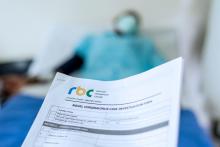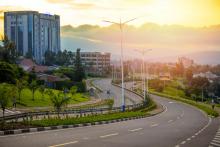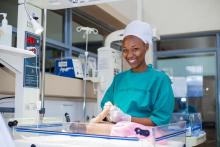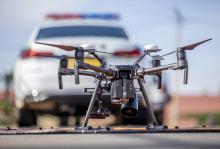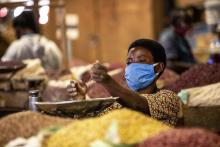COVID-19 in Rwanda: A country’s response
Rwanda prior COVID-19
Rwanda has had its share of high-level alert since 2018 with the Ebola Virus Disease (EVD) at its door-step on the Democratic Republic of Congo side. For a country with limited resources facing a potential epidemic at that time, Rwanda quickly realized it could only rely on a properly coordinated and multi-sectoral approach.
When faced with COVID-19, a national crisis committee of key Ministries involved in the response was nominated, and chaired by the Prime Minister. The committee put in place a COVID-19 Joint Task Force (JTF) on 9th March 2020 to coordinate the implementation of a preparedness and response plan just in time for the first case.
“Any health system is only as strong as its weakest link. Whether it’s Ebola, COVID-19, measles or another pathogen, universal health coverage is our best defense.”
Dr. Daniel Ngamije,
Minister of Health.
Rwanda amid COVID-19
On 14 March 2020, Rwanda reported the country’s first case of COVID-19. Three months into the pandemic, Rwanda counts over one thousand cases. Close to half of those cases have recovered and none has shown signs of relapse. Five have passed but all remaining active cases are in treatment centers in stable condition.
The declaration of the outbreak was followed by a series of preventive measures such as the mandatory quarantine for all travelers coming into the country, compulsory wearing of face masks, hand washing and practice of physical distancing. Several campaigns were organized including risk communication and awareness campaigns, #GumaMuRugo – a call to stay home and save lives- which made a buzz thanks to the Rwanda National Police, the Health Sector and local authorities’ efforts and innovations in community awareness, rumor management as they encouraged citizens to respect safety measures in the entire country. #NtabeAriNjye - roughly translated as “Let it not be me” - quickly followed to revive the fight at an individual level when the community started showing signs of complacency and took its foot off the pedal.
“It shouldn’t be me or you who spreads the COVID-19 virus. Let us continue to protect ourselves and our loved ones. Please stay home and comply with preventive measures against COVID-19.”
Pudence Rubingisa,
Mayor of The City of Kigali
At the Heart of the pandemic
Close to 2000 members from across sectors are working in different areas of interventions including principally Epidemiology that deals with surveillance, contact tracing, lab testing and case management including psychological support. Other important supporting areas of intervention are risk communication and community engagement and planning logistics.
Similar structures were established in all 30 Districts under the leadership of Mayors. Rapid Response Teams (RRTs) were activated at District levels reporting on daily activities to the central level. In addition, 2000 different professionals worked to support the COVID-19 Joint Task Force.
A multi-sectoral approach was used at the creation of the task force, hence the fact that it is composed by members of different areas: Public, local authorities, security organs, civil society and development partners.
The Joint Task Force continues to maintain expert advisory teams from Ministry of Health, Ministry of Defense, Ministry of Finance and Economic Planning, Ministry of Internal Security and Ministry of Local Government.
“Our response strategy against COVID-19 has entirely been relying on a multi-sectoral coordination system led by the Prime Minister’s office. This is the reason why the technical team I’m currently heading is made of interdependent cells.”
CP. Dr. Daniel Nyamwasa,
Joint Task Force Coordinator
As preventive measures continue to be taught and implemented in the community, the Rwanda Biomedical Center conducted tests by thousands. By mid-July over 200,000 samples had been tested for COVID-19. The laboratory started off with the capacity to test close to a thousand samples on daily basis but in four months the testing capacity increased 15-fold with a shift from manual extraction of RNA to an automated system providing results in the shortest time (pooling system).
While all COVID-19 tests were initially performed at the National Reference Laboratory (NRL), a new testing strategy was introduced to decentralize capacity through peripheral District laboratories. The laboratory testing guidelines were revised to facilitate prioritization for COVID-19 testing when testing capacity is limited. A decentralized of the laboratory to Rusizi, Kirehe, Nyagatare, Rubavu, Rwamagana, and Huye Districts allowed tests to take place in six additional areas outside Kigali.
Laboratory testing is done for all suspected cases, contacts of confirmed cases and other identified high-risk groups. Tests are performed in scope of several reasons that include: Laboratory confirmation of suspected cases, Control of case under treatment, Testing contacts under follow up in contact tracing, and for Screening and surveillance purpose (test of high risk groups or ILI-SARI).
On 10 May, The East African Community with support from Germany donated Two mobile PCR platforms (Thermo Cycler) from Bio_Rad. The machines can be deployed anywhere in the field to test for COVID in high-risk populations in case of need.
Registered cases are classified in three categories according to whether they were imported, locally transmitted and unknown sources of transmission. The most affected groups have been the group of 30-39 years with 324 cases and men representing close to 80% of all COVID-19 confirmed cases.
The specimen used for COVID-19 diagnostic are oral and Nasal-pharyngeal swab. For screening test, Daan Gene nCoV RT-PCR (N gene, ORF1ab gene) is used and Tib Molbiol LightMix SARS-CoV RT-PCR (E gene, RdRp gene) for confirmatory test.
“Lab testing capacity determines efficient COVID-19 response. As a nation, we will continue to boost our testing capacity and test as many samples as possible.”
Dr. Edouard Ntagwabira
National Reference Laboratory
Active surveillance, contact tracing and containment measures for isolating suspected cases and treating confirmed cases continue to be implemented. The Joint Task Force proceeds by case finding, quarantine, decontamination and isolation for treatment.
The Government of Rwanda set up several isolation sites and 2 treatment centers during the preparedness phase. Currently 10 Treatment centers have been set up to offer treatment to confirmed COVID19 cases. 2 Treatment centers are in the Capital City, 2 are in the Eastern Province while 6 are in Western Provinces.
The facilities are under the responsibility of the Site manager, who reports directly to the COVID-19 Joint Task Force. The full time on-site staff is multidisciplinary and includes a physician specialized in Emergency Medicine and Critical care, general practitioners, nurses, psychologists, nutritionists and infection prevention and control staff as well as cleaners.
“Despite the absence of a cure, our knowledge about this novel disease increases every day. We have been able to demystify myth after myth and we now know that the successful control of COVID-19 pandemic requires collaborative efforts from each and every frontliner.
Dr. Menelas Nkeshimana
In charge of Case Management
Innovating through tough times
On 19 May, with the support of UNDP Rwanda, High-tech robots were introduced at treatment centers to administer temperature checks, monitor patient status, and keep medical records of COVID patients. The use of robots is meant to minimize risk of infections among health care workers.
The lab reporting system is currently being digitalized. This will enhance linkages between laboratory results to the other response actions. The screening of all travelers entering Rwanda is done with an electronic questionnaire.
With the shortage of ventilators worldwide, a team of biomedical experts and engineers has started to produce ventilators to assist critical COVID-19 patients. The country currently has over 100 ventilators with 23 of them dedicated to COVID-19 treatment centers. Fortunately, not more than three patients out of over a thousand have been placed on oxygen therapy support.
While lifting lockdown, prevention measures were introduced to support re-opening of different services such as meters for commercial taxi-moto which were introduced to encourage cashless transactions. The Rwanda National Police used drones to spread awareness messages through remote and densely populated neighborhoods. Bracelet-enabled tracker are used by the surveillance team to enforce travel restrictions for inbound travelers who have been asked to stay home for quarantine and local companies took on the production of disposable medical masks, to protect populations against COVID-19.
Online schooling programs were availed by the Ministry of Education to cope with the March-September gap in the academic calendar and Traffic Police came up with an application to regulate movements during lockdown. Solutions were and continue to be found each time a challenge arises after lockdown.
“In our efforts to break the transmission chain, and protect vulnerable population we have embraced innovative approaches to resolving issues as they came. Most times we found that solutions came from within or from pre-existing solid partnerships.”
Dr. Sabin Nsanzimana,
D.G. Rwanda Biomedical Centre
The new normal
In line with the progressive lift of the lockdown, since 4 May 2020, Public and private transport resumed. In the entire country, authorities repeated reminders to observe the following measures: Wash hands; Wear a face-mask; Practice physical distancing; Be home by 9 pm as curfew is still applicable; Resume work with staff not exceeding 50%; Provide masks for all employees while at work.
Markets and shops remain open provided people continue respect preventive measures. Transactions are mainly cashless, and Wash stations and hand sanitizers are compulsory in all public spaces.
On 4th July, the Ministry of infrastructure announced that airports will reopen for all flights on 1 August 2020. Passengers will be required to show proof of COVID-19 polymerase chain reaction test (PCR) taken within 72 hours of arrival. Passengers entering Rwanda will also be required to take a second mandatory test within 24hours and other prevention measures will be put in place.
The Office of the Prime Minister has announced that it will be carrying regular reassessments of the situation and that further Covid-19 measures will be progressively announced by the Cabinet.




